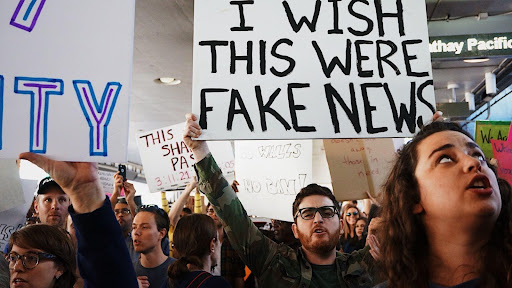
False information is becoming a growing threat to the tech industry, society, and democracy. According to Oxford University's Oxford Internet Institute, the number of countries with active disinformation campaigns has increased to at least 70 in 2022, up from just 28 in 2020. The report emphasises the growing problem of internet-spread propaganda and disinformation.
The report concludes that using social media to try to change people's minds is "a serious threat to public life." There is much evidence that governments have used social media to shut down critics, stop debate, and hurt the media's credibility. Professionally-done digital campaigns are going on in places like China, India, Iran, Pakistan, Russia, Saudi Arabia, Azerbaijan, Zimbabwe, and Bahrain. According to the researchers, this is not the work of a "lone hacker."
Findings have shown divisive social media campaigns have "weakened public trust in journalism, democratic institutions, and election results in many countries around the world." They have also "intensified ethnic tensions, brought back nationalist movements, made the political conflict worse, and even led to political crises."
According to the researchers, Chinese efforts to disseminate misinformation have increased. During the Hong Kong protests, it became clear that China was one of only a few countries spreading disinformation worldwide. In response to the demonization of the protesters, Facebook and YouTube removed accounts and channels. Twitter eventually deleted accounts and ceased advertising in state-controlled media.
Twitter has banned thousands of other state-backed accounts from spreading misinformation outside of China, and Facebook has removed over two billion fake accounts this year. However, the report emphasizes that these measures are insufficient.
India Reflects: The first truly international news agency out of India
Sanchit Gupta and Ankita Sharma, two Indian entrepreneurs, and journalists are on a mission to restore India's trust in the truth and end the country's widespread acceptance of falsehoods.
As Sanchit explains, "Misinformation, even if it's only a little bit, can have devastating effects on democracy. Voters are more likely to make poor decisions, like supporting candidates or policies that are bad for the country, when they are fed misleading information."
He says traditional media outlets are just as guilty of spreading false information as social media sites. For people to read and watch their news, many media outlets will publish information that hasn't been checked properly or is completely false.
IndiaReflects.com, India's first truly global news website, was created partly for this reason. As Editor-in-Chief, Sanchit has published many articles on the site, including ones about international events, business, economics, technology, and sports.
When asked why they took on such a hard job, Sanchit said that he wanted to give readers a factual and clear explanation of any problem or event in the world because he was curious.
He says they started IndiaReflects.com to bring back journalistic standards of objectivity, thoroughness, factual accuracy, investigative skill, professionalism, self-confidence, and discipline.
While the launch of IndiaReflects.com is certainly noteworthy, Gupta stresses that much more needs to be done to combat misinformation. He argues that news organizations should exercise greater caution in their reporting and that media literacy education should be incorporated into the curricula of schools. He thinks that social media sites should do more to stop the spread of fake news.
Still, it's up to each person to exercise caution in their own information intake and dissemination. In the words of Sanchit once again, "We need to be critical of what they read and give them only reliable sources. If we don't do something, falsehoods will remain the bedrock of our democratic system."
"This is the time for factually accurate and unbiased journalism," Sanchit says. "If we want future generations to know the truth."
For more information on Sanchit Gupta and his work to end disinformation, visit IndiaReflects.com and follow their social media channels.









